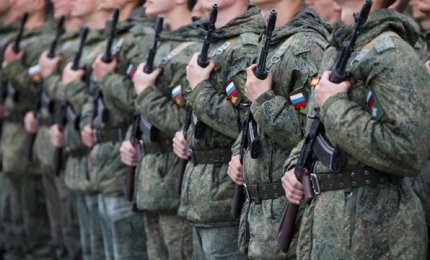In the Kremlin, bonuses for mobilization for the war against Ukraine can be increased against the background of the offensive of the Armed Forces of Ukraine in Kurshchyna, but this practice does not work well and has shown its inefficiency.
Points of attention
- Current mobilization strategies in Russia to replenish personnel losses in the war against Ukraine have shown inefficiency, leading to discussions of potential new mobilization.
- The Russian government's attempts to attract 500,000 new recruits through financial incentives have faced challenges, with regions struggling to meet recruitment quotas.
- The ongoing offensive of the Ukrainian military in the Kursk region has highlighted the difficulties faced by the Russian occupiers, emphasizing the urgency for effective mobilization strategies.
- To counter the shortfall in recruits, the Kremlin is considering announcing a new mobilization in Russia, potentially by the end of the year, in conjunction with unit rotations at the front in Ukraine.
- Amidst escalating casualties and challenges in sustaining the current recruitment strategy, Russia may shift its focus towards conscription to meet the substantial personnel requirements for the ongoing conflict.
What is known about the probability of announcing mobilization in Russia against the background of the offensive of the Armed Forces in Kurshchyna
Journalists of the publication, citing three interlocutors close to Kremlin circles and the Ministry of Defense of the aggressor country, point out that the occupying army of the Russian Federation does not receive a sufficient number of recruits to cover its own losses in the criminal war against Ukraine unleashed by the Kremlin.
The losses of the Russian occupiers at the front in Ukraine have currently reached the highest figures since the beginning of the criminal invasion of Ukrainian territory.
It is emphasized that the local authorities of Russian regions do not fulfill more than a third of their recruitment quotas.
Two interlocutors of the publication also noted that the situation may force the Kremlin leadership to consider the option of announcing mobilization.

Kremlin officials are considering this step simultaneously with the rotation of units at the front in Ukraine.
According to one of the sources, mobilization in Russia may be announced by the end of this year.
The stunning offensive of the Ukrainian military in the Kursk region did not meet much resistance from the Russian occupiers and highlighted the problems of the military and political leadership of the aggressor country.
It is noted that the Ukrainian military currently controls about 1,000 square kilometers of the territory of the Kursk region and continues its offensive.
Hundreds of thousands of Russian soldiers are at the front in Ukraine, in the eastern and southern regions.
How the Russian authorities implement the strategy of mobilization
In an effort to avoid a repeat of the failed mobilization in the fall of 2022, the Kremlin has focused on appeals to patriotism and offers of money to try to secure the 30,000 new soldiers it needs every month just to replace losses.
In particular, the Kremlin authorities are forced to sharply increase payments to the federal and regional authorities in order to convince people to mobilize to the ranks of the army.
The pressure to fill quotas is so strong that rich regions lure people to poorer ones in order to sign contracts with them and get the right to bigger bonuses.
The scale of Russian losses and the insufficient level of replacements make it increasingly difficult to sustain the current strategy of slow advance in Ukraine.
In the material of the publication, it is noted that the Russian authorities have taken financial incentives to mobilize new prisoners to the army to the extreme.
In July, Moscow Mayor Sergei Sobyanin promised to pay 1.9 million rubles ($22,000) to volunteers who sign military contracts, on top of the 600,000 rubles already paid annually in monthly payments by the city government, on top of wages and bonuses. defense
Putin also instructed the government to double the federal bonus to new recruits to 400,000 rubles by the end of the year and called on regional authorities to pay the same amount.
Some regions are asking the government for subsidies to help them comply with Putin's request because they cannot raise the money locally.
Putin needs about 500,000 men over the next 12 months to compensate for the drawdown and rotation of his troops deployed in Ukraine. Russia's current recruitment strategy, which is based on paying volunteers above market wages, will be inadequate to achieve this goal. Instead, the government will most likely switch its attention to conscripts, - explains Bloomberg Economics Russia economist Alex Isakov.
According to Western officials, Russia has already lost about 500,000 people in the war against Ukraine.
The daily casualty rate is likely to remain above 1,000 throughout August as Russia continues offensive operations across a wide swath of the front in Ukraine.




